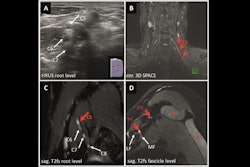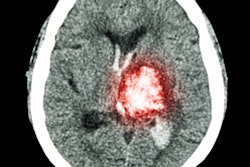Advanced neuroimaging MRI techniques -- such as perfusion and spectroscopy -- change 44% of management plans in patients with high-grade glioma, researchers have reported.
The findings prove the theory that advanced, follow-up MR imaging in this patient cohort would influence how they were managed, wrote a team led by Samir Dagher, MD, of the University of Texas MD Anderson Cancer Center in Houston. The study findings were published August 14 in the American Journal of Roentgenology.
"[Our study confirmed] the hypothesis that there would be a management change in at least one-third of cases," the group noted.
Advanced MRI neuroimaging has been used more frequently in follow-up protocols for patients with high-grade glioma in an effort to distinguish between tumor progression and treatment effect. But how these techniques affect clinical management hasn't been clear. Dagher's group investigated the impact of MRI-based advanced neuroimaging on clinical decision-making in patients with high-grade glioma in a post-treatment setting via a study that included 63 individuals treated with chemoradiation for World Health Organization (WHO) grade 4 (most aggressive) diffuse glioma between March 2017 and October 2020.
All study participants underwent conventional MR imaging and then advanced neuroimaging (that is, multiple perfusion imaging sequences and spectroscopy) to evaluate equivocal findings from the initial exam regarding tumor progression versus treatment effect. Ten neuroradiologists interpreted the advanced MRI exams. Seven ordering neuro-oncologists completed surveys before and after the additional advanced neuroimaging, and the investigators calculated the percent of changes between the intended and actual management plan before and after this additional imaging.
Of the 63 patients, 44% of intended management plans changed after advanced neuroimaging, the authors reported. Changes included making a different arrangement for those patients with an intended plan to be enrolled in a clinical trial, to change chemotherapeutic agents, to undergo surgical intervention, and to undergo another course of radiation treatment. In fact, ordering clinicians found the advanced neuroimaging MRI exams to be helpful for recalibrating 93% of management plans for these brain cancer patients.
The study findings highlight MRI's usefulness for establishing effective care for brain cancer patients, according to the researchers.
"The impact of advanced neuroimaging techniques on management decisions supports their incorporation into imaging protocols for treatment monitoring in adult patients with [high-grade glioma]," said corresponding author Melissa Chen, MD, also of MD Anderson, in a statement released by the AJR.
The complete study can be found here.




















